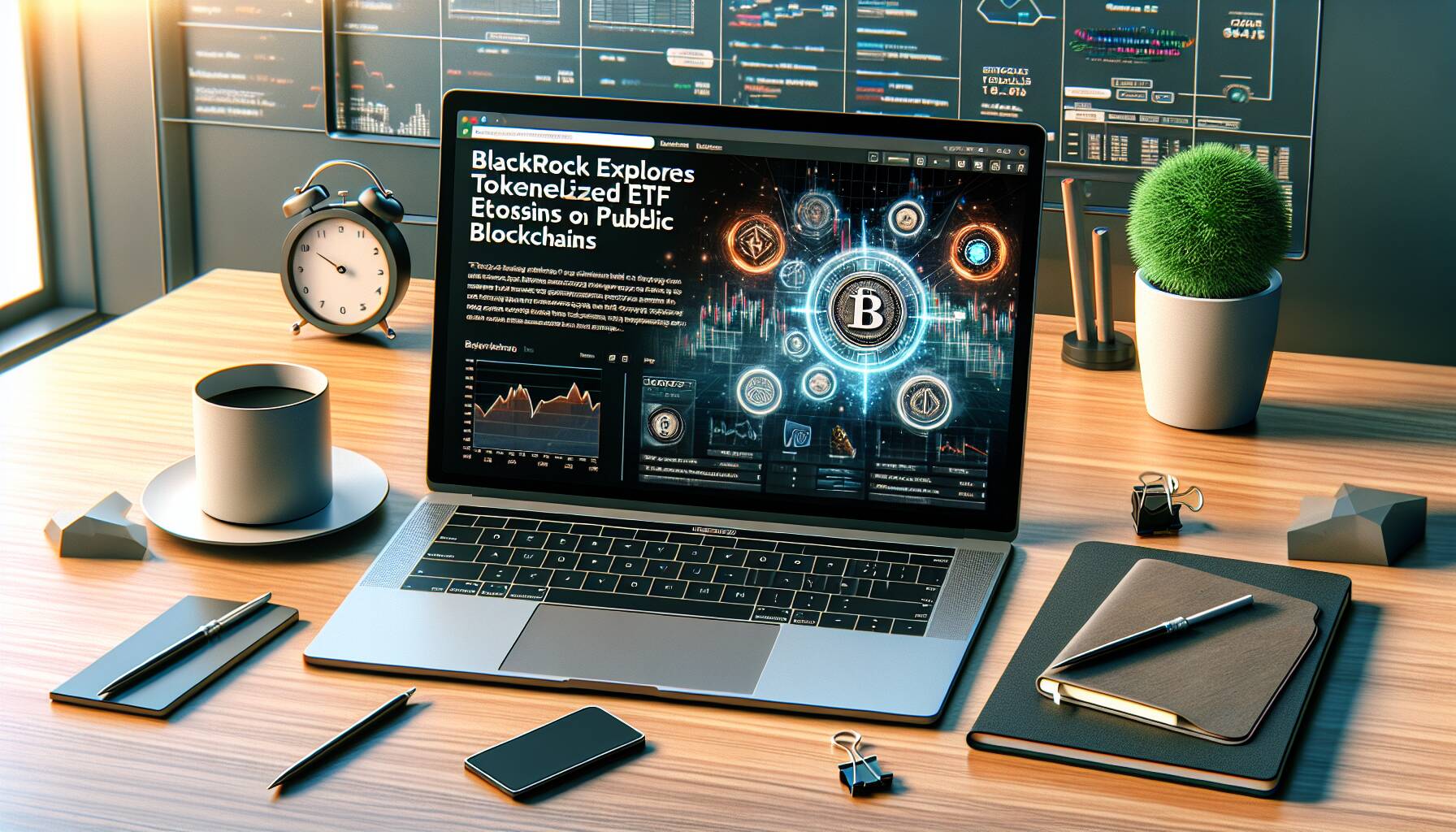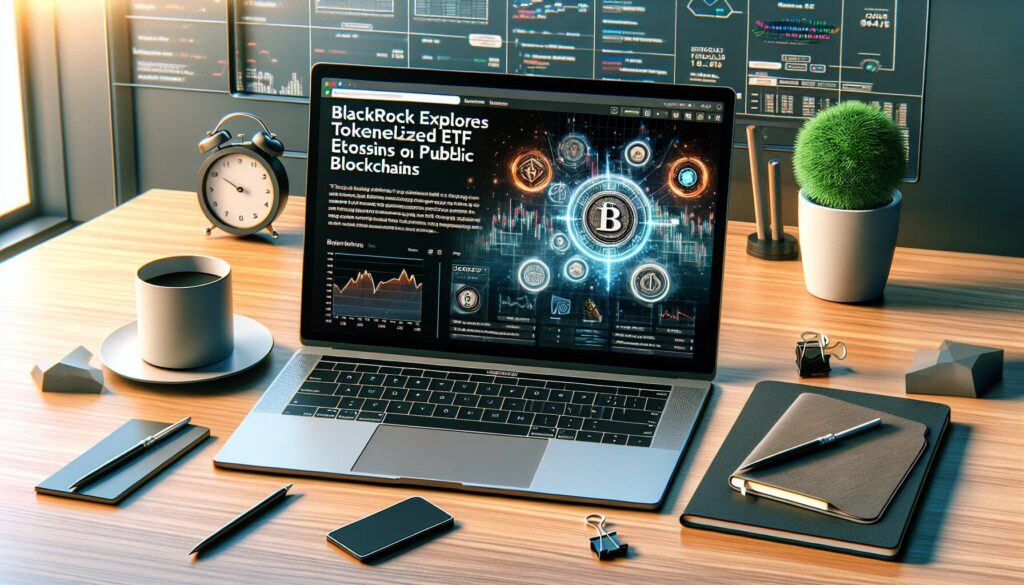BlackRock is setting its sights on an innovative frontier in the financial world by exploring the potential of bringing exchange-traded funds (ETFs) to public blockchains. According to sources familiar with the developments, the asset management giant is considering tokenizing funds linked to real-world assets such as stocks. However, the actual implementation hinges on obtaining regulatory approval.
This initiative follows BlackRock’s previous venture into the realm of tokenization with the introduction of the BlackRock USD Institutional Digital Liquidity Fund—commonly referred to as BUIDL. This fund has rapidly grown to become the largest tokenized Treasury product globally, managing an impressive nearly $2.2 billion and backed by short-term U.S. Treasuries, repurchase agreements, and cash.
“Tokenizing ETFs could radically transform how these financial products operate,”
Proponents of this approach argue that turning ETFs into tokenized versions would not only facilitate 24-hour trading but also enhance the speed of settlement processes, reducing them from the traditional two business days to mere minutes. Furthermore, such advancements may provide investors in regions where ETFs are less accessible with new pathways to gain exposure through blockchain technology.
The current explorations by BlackRock highlight a broader trend in the financial sector as various banks, fintech companies, and asset managers experiment with blockchain technology to enhance their offerings, ranging from bonds to private credit and now mainstream equity funds.

Impact of BlackRock’s Exploration of Tokenized ETFs
Key points to consider:
- BlackRock’s Initiative:
- Exploring the integration of exchange-traded funds (ETFs) onto public blockchains.
- Considering the tokenization of funds tied to real-world assets, like stocks.
- Previous Experiment:
- Introduced the BlackRock USD Institutional Digital Liquidity Fund (BUIDL), the largest tokenized Treasury product managing nearly $2.2 billion.
- Advantages of Tokenization:
- 24/7 trading opportunities versus traditional stock market hours.
- Quick settlement times, potentially within minutes instead of two business days.
- Improved access to ETFs for investors in regions with limited availability.
- Regulatory Approval Needed:
- Any rollout of tokenized ETFs is contingent upon regulatory approval, highlighting the importance of compliance in financial innovation.
- Industry Trend:
- Reflects a broader movement within the finance sector towards utilizing blockchain technology for various financial products.
- Involves collaboration among banks, fintechs, and asset managers exploring blockchain for bonds and private credit.
BlackRock’s Foray into Tokenized ETFs: A Game Changer or Regulatory Hurdle?
BlackRock’s recent initiative to explore the integration of exchange-traded funds (ETFs) with public blockchains marks a substantial evolution in financial products. This strategy taps into the growing trend of tokenization in finance, where assets are digitized and traded on decentralized platforms. With the potential to transform how investors interact with ETFs, BlackRock could position itself at the forefront of this innovation. Such a move offers significant advantages over traditional ETF offerings, including continuous trading opportunities and expedited settlement times, enhancing liquidity and accessibility for various investors.
However, this groundbreaking shift is not without its challenges. Regulatory approval is paramount and poses a considerable barrier. As capital markets around the world grapple with the implications of blockchain technology, differing regulations could hinder a unified global approach to tokenized ETFs. Competing asset managers may view BlackRock’s exploration as a double-edged sword—a potential market expansion opportunity could also lead to increased scrutiny and competition in tokenized product offerings.
The implications of BlackRock’s venture are broad. Retail investors, particularly those in regions with limited ETF options, stand to gain significant exposure to diverse assets via blockchain. On the flip side, traditional financial institutions might feel pressured to adopt similar strategies to stay competitive, potentially disrupting existing business models. Additionally, concerns around volatility and the security of blockchain transactions could pose risks for conservative investors, creating a dichotomy in market readiness.
In summary, while BlackRock’s exploration into tokenized ETFs represents a bold step into a new financial frontier, it also necessitates careful navigation of regulatory landscapes and investor sentiment across different markets.

















